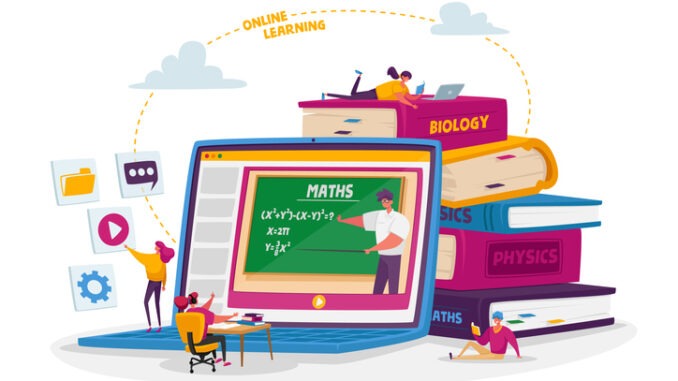
Dr Fiona Aubrey-Smith, director of One Life Learning, on changing the narrative around technology in education
In 2007 my school won a national award for ‘extending learning opportunities through the use of technology’ (Becta, 2007). One of the things we did was to use online learning spaces to enable 5-7 year olds to learn with and from all kinds of other people – sometimes locally and, often, all around the world. Through those online spaces children were able to bring their home experiences into the classroom, and extend our classroom activities and discussion out beyond school. It wasn’t so much that ‘it takes a village to educate a child’ as bringing the village closer to the child – and on their terms. We saw technology as the servant to our vision for what learning should look like – a tool for shifting the narrative about who children can learn with, when they can learn, and where they can learn.
All of this formed the heart of a Masters that I was writing at the time – How the implementation of virtual learning environment can affect the strategic development of a whole school (Aubrey-Smith, 2007). In short technology, to us, had been a catalyst that prompted us to think about non-technology priorities. What should the learning experience for our children look like both within and beyond their time with us in the classroom? What could that mean for assessment, relationships, curriculum, equity, inclusion and so much more.
At the time, we didn’t think that what we were doing was particularly innovative but, in the years since, I have had the privilege of visiting and working with thousands of schools across the country (and beyond) and have found two things particularly striking. The first is that innovative teachers and leaders usually assume that what they are doing is obvious to anyone else and believe that others are probably doing something similar (spoiler – they’re usually not!) The second – specific to technology – is that uses which make a real difference to children’s lived experiences of learning are still the preserve of the enthusiast.
Until now.
In the last year there has been an abundance of research papers published around the world which have reflected on the role of technology during pandemic lockdown periods. These papers have challenged us to think about what we can learn from this, and what the future should look like. There has also been a linked flurry of conferences, panels and round tables about the future of edtech; I have had the privilege of attending or speaking at many of these. Most importantly of all, I – and others – have been working with many schools and trusts which are profoundly rethinking their edtech or IT strategies – putting big picture strategic thinking and action plans back on the table for discussion because we are all hearing the message that:
- ‘it is the pedagogy of use of technology which is important: the how rather than the what’ (Higgins et al., 2012);
- ‘technology must be used in a way that is informed by effective pedagogy” (EEF, 2020);
- we must ‘embrace the pedagogic advances that edtech allows” (APPG, 2021);
- we need to ‘reduce the reliance on attendance as a proxy for learning” (Educate, 2021).
In other words – let’s move on from talking about technology and think about the pedagogy that informs what we do – but hang on – this is not new news! Why are so many discussions and documents still stuck on this same point? If we know that technology use should be informed by pedagogy, then where is the discussion that is moving this specific point forward?
I’m going to nail my colours to the mast here – I think the problem is that no-one really knows whose pedagogy we are referring to.
Do we have a national pedagogy? An agreed academic or research-based pedagogy? A trust or school-wide pedagogy? No. We can’t – because pedagogy is values-based. Pedagogy is about asking:
- What do you really believe the role of the teacher is?
- What does it mean to be a learner?
- How does knowledge come to exist?
- Where does motivation come from?
- What affects what’s possible for a learner?
- What is the relationship between school and education?
So, here’s the thing. Our pedagogical beliefs are a combination of many different influences and are rooted far back in our own childhood experiences (Aubrey-Smith, 2020). When we talk about pedagogy in staff meetings, on training courses or when planning school and trust activities, we’re talking about socially accepted pedagogical practices (what we do) not individual pedagogical beliefs (how we do it). Yours will not be the same as mine, even if we work in the same school, with the same children, under the same ethos and strategy. And that’s ok – it doesn’t make one of us right and the other wrong – but it will affect what we do through our practices and, therefore, what students’ lived experiences with us will be.
When we recognise that pedagogy needs to come before technology I don’t think we mean the national, trust-wide or even departmental conversations about what effective pedagogy looks like; those are important conversations but they’ll always be subjective debates. What we need to be talking about is what effective pedagogy means to you – personally.
Can you see where I’m going here?
If we each – individually – have subtly different pedagogical beliefs, then we are each going to apply those in our teaching and leadership work differently, resulting in different experiences for the children that we work with (I wrote a whole doctoral thesis on this if you’re interested! Aubrey-Smith, 2020). It’s naïve to think these can be streamlined or made consistent – human beings don’t work like that. If we want to see positive change in how, when and where technology is used within teaching and learning, then we need to shift the narrative.
We need to move from thinking about edtech – with its inferences that ‘what works’ can somehow be parachuted into different contexts and have the same impact – and to move to pedtech – where the conversation, the focus and the action is rooted around pedagogical beliefs, not just pedagogical practices. It’s these beliefs – as manifested through our use of language and the nature of our relationships – that shape our students’ lived experiences. We can then focus on the reality of improving practice, rather than just an optimistic ideology (Selwyn and Facer, 2021).
So my call to action for you today is this. Education focuses on the system; pedagogy focuses on the person. That person is YOU – what you do and believe – not just what you say or what your intentions are. It’s what you do for the learners in front of you – and what their lived experiences become as a result. So shift from edtech to pedtech; change your narrative from education to pedagogy.
Here’s how in just two simple steps.
Firstly, take time to think about your own pedagogical beliefs. The easiest way to start this conversation is to use a tool like The Pedagogy Framework and explore aspects of pedagogical beliefs to see which you most instinctively align with – asking big questions like:
- What do you really believe the role of the teacher is?
- What does it mean to be a learner?
- How does knowledge come to exist?
- Where does motivation come from?
- What affects what is possible for a learner?
- What is the relationship between school and education?
You need to be more aware of how your own values and beliefs shape your practice. There is a famous quote that ‘consciously we teach what we know whilst, subconsciously, we teach who we are’ Hamachek (1999). You need to understand who you are. Then you can choose the right tools to support the pedagogy that is shaping your practice and, most importantly, your students’ lived experiences.
Secondly, once you are clear on what your pedagogical beliefs are simply focus your technology priorities around how those beliefs can be realised through practice. It may help you to think of three strands:
- New relationships: how we are changing who and what we interact with, how and why – and what this means for high quality teaching and learning.
- New efficacies: how we can simplify, automate, make accessible and make more impactful actions which directly impact learning.
- New possibilities: how we can mobilise and democratise learning, provide capacity for both teachers and learners, and transform accessibility and vitally – making possible more learner-oriented ways of thinking about education.
These ideas will be different for different members of staff – even within the same school or department – and that’s ok! If teachers and leaders are able to choose tools that help them to be the teacher or leader that they want to be, then both the tool and the person become more effective, and lead us towards greater collective efficacy which we know trebles the impact on student achievement (Hattie, 2020).
My key message to you is this; education focuses on the system, while pedagogy focuses on the person. So, as we move forward together, let us shift the narrative – from edtech to pedtech.


Be the first to comment